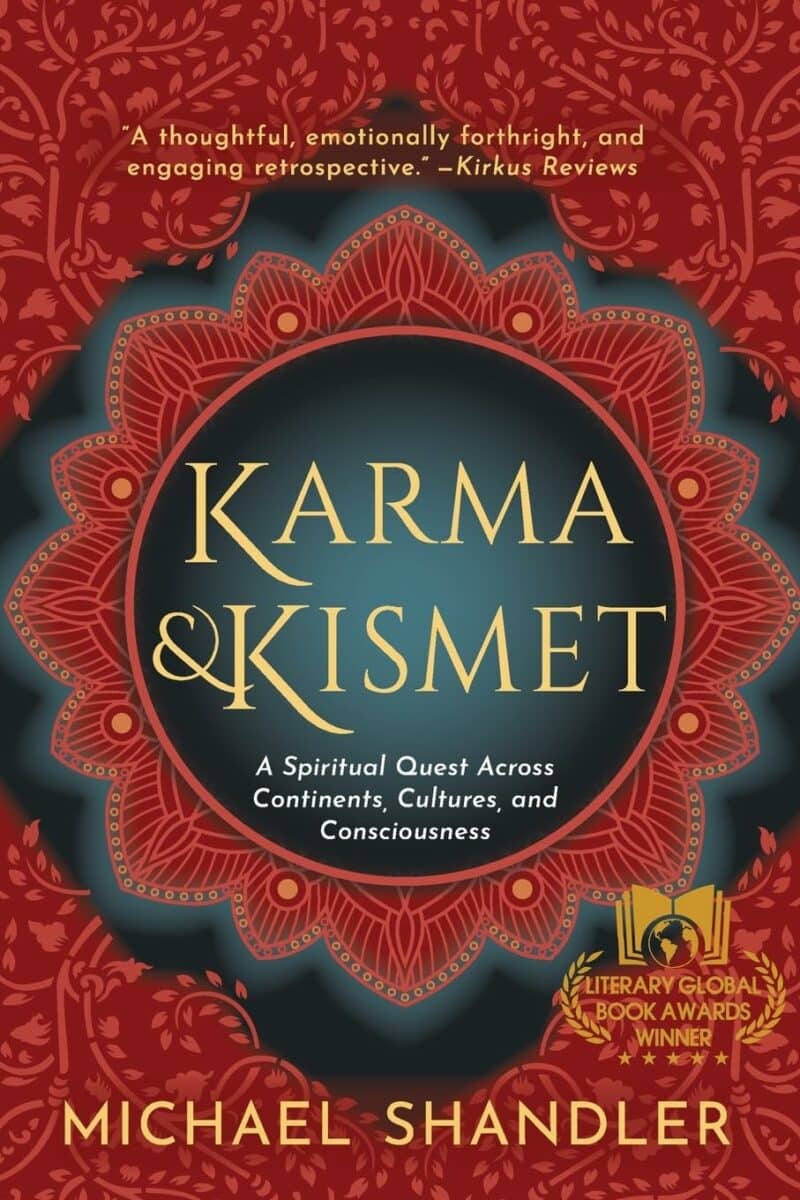Should you fire your deadweight brother-in-law or comply with your mom’s pleas to give him a raise? Should you pay all your kids the same, based on the market, or based on how many of your grandkids they raise? These are the questions family business leaders confront due to the opposing expectations of the family and the business.
Hug of War offers a new path forward. When the competing impulses of the family mindset and the business mindset are embraced as a polarity, leaders transcend either-or thinking and craft better solutions that embrace the best of both mindsets.
With stories that take you into the hearts and heads of real-life family business leaders, Hug of War offers a bridge to greater harmony in your family, greater clarity in your mind, and greater peace in your heart.
When the Claytons accepted the mission of teaching at a small college in the Philippines in the late 1970s, they had no idea how much their lives would change. Dale Clayton taught science; his wife, Karen, worked and took classes; and their young children, Kimberly and Jeff, attended a one-room, multigrade school. But this simple summary doesn’t come close to encompassing the thrill and shock of becoming embedded in an entirely different culture. Martial law, academic politics, homesickness, and ruthlessly hot weather presented many challenges, but through it all, the Claytons inevitably learned that people are more alike than different—yet the differences make life more vibrant.
Attorney Andrew Coyle returns again to do legal battle in the American Wild West. This time, Coyle is summoned by a close friend to Cripple Creek to defend a “working girl” accused of murdering her madam. Coyle, traveling with his wife and daughter, enters a tumultuous mining town of roughnecks, prospectors, and assassins. Coyle’s investigation proves unsettling to some, and he himself is accused of yet another murder. His life threatened, Coyle resists and stubbornly tries to solve both cases.
In the ancient Chinese game of mah jongg, each player must make the most of the tiles they’ve been given. It’s the same in the game of life.
When Roseann is called away to a family emergency, her mah jongg pals bring in a new player, Grace. Roseann returns with her grandson, committed to raising a child again—this time as a widow with serious health issues. Marlene, a dutiful but repressed wife, is dealing with a dying mother and fractious father; Susan, a twice-divorced new grandmother, struggles with the realities of aging and fading beauty amid the modern dating scene; Barbara, a successful businesswoman, is married to a manipulative philanderer; and Grace, a social worker, becomes the voice of reason—until her loyalties are tested.
Will these friends, with ties both old and new, strengthen their bonds as they support each other through life’s challenges? Or will the group fracture, leaving them scattered like mah jongg tiles from an overturned table?
Why is changing the way we think so hard? Sticky Note Mantras taps into the extraordinary power of the mind by using a simple yet effective strategy: MANTRAS! Let us guide you through this transformational process of awareness and lasting change. With a dash of bravery and a bit of stick-to-itiveness, we promise that change can and will happen. Through mindfulness, creativity, and a smidge of science, we’ll teach you how to brainstorm badass mantras of your own and weave them into your life so they stick. And as Thomas Edison said, “Sticking to it is the genius!”
Set in the mid-twentieth century, The Road to Courage is narrated by a young boy as he journeys with his family to new and wild territory on the Alaskan frontier, a land where life’s priority is survival rather than comfort. This memoir sketches a portrait of his complex family—courageous, committed, flawed, and yet resilient—and, through a series of terrifying adventures, traces the unbreakable bond between the timid narrator and his fearless, fun-loving brother.
The family’s faith remains a central thread as the preschool brothers work beside their minister father to construct a log church in Valdez without power tools. Along the way, the reader is given a rare glimpse into life in Old Valdez, a town destroyed by the 1964 earthquake.
What do you do when faced with trauma?
Shaking in the Forest opens with a plane crash and ends with a life-threatening illness. At the age of twenty-five, Lori Hodges chose to make a career helping people during the worst days of their lives. She has spent the last thirty years in emergency services—first as a firefighter and paramedic and later as an emergency manager, helping to coordinate the response and recovery to disasters. It is through this work that she has come to see the beauty in tragedy.
Each of us will face difficulty in our lives, but it is often the most difficult of times that teach us the greatest lessons. And, it is through our connections to others that we are able to step forward into a new day. Connecting the lessons Lori learned as a paramedic with her own personal trauma, Shaking in the Forest brings light to thedarkness to help each of us find a way to thrive even during our most difficult days.
In Green Forest, Red Earth, Blue Sea, amid the rugged terrain of North Carolina, a small pocket watch bears witness to the loves and losses of three families—the Kellers, Elliotts, and McClures. As the heirloom passes down over a hundred years, questions arise. Can strength and goodness be gifted to one’s heirs? What about corruption and evil? Do the lives of ancestors have any bearing on those who come after them?
From Reconstruction to the modern age, this sweeping family saga speaks to what binds families together and tears them apart. Powers of darkness and light fight for the minds and hearts of every individual. In a land of beauty populated by Scots Irish pioneers, cotton farmers, Native Americans, fishermen, and pirates, Green Forest, Red Earth, Blue Sea is a chronicle of human failings and the power of redemption—and a probing narrative of which is the stronger force.

Evoking Paul Theroux’s travel novels in directness, color, and observations, Karmaand Kismet catapults the reader into an international and cross-cultural journey, an authentic sixties and seventies quest for meaning and place. Filled with real characters, deep human conflicts, pathos, and passion, this memoir tells a unique yet universal story about overcoming bad karma and the role of kismet, or fate, in shaping life and destiny.
A deeply honest, courageous, and inspiring account, Karma and Kismet challenges readers to go beyond their comfort zones, resonating with anyone who has ever questioned their identity or their place in the world and how they might find connection and belonging. With a vivid and immersive style, Shandler effortlessly draws readers into his story, inviting them to reflect on their own life paths.

When Jill, a young Princeton graduate student, comes to India to research the Narikuravar people, known locally as “Gypsies,” she reunites with her honorary uncle, Venkie, a mild-mannered professor. Little does she know of Venkie’s secret life as a crisis negotiator for India’s National Defense Intelligence Agency (NDIA). When Venkie’s old nemesis, the terrorist Kebab Jambo, threatens to unleash a terrible weapon, Venkie must travel across India to meet him face-to-face and try to negotiate a peaceful resolution before the NDIA eliminates the threat violently.
Jill, Venkie, and their new Gypsy friends Sing and Kinnie, set out on an epic journey to avert disaster. Never knowing what’s around the next bend and confined to traveling by bus, train, car, and horseback, the four companions wind through colorful, unfamiliar landscapes encountering a whole spectrum of joys and dilemmas. But Kebab’s cohorts are hot on their heels, trying to stop the group from reaching the fanatic. Can this handful of friends from wildly divergent backgrounds make it all the way before time runs out? And can Venkie use Gandhi’s philosophy of nonviolence to convince Kebab to end his vendetta?
In Old House and Red Neckties, Grace Virtue weaves a powerful narrative, juxtaposing ideas of home and belonging against stark intergenerational poverty and systemic inequities—legacies of slavery and colonialism in her homeland, Jamaica. Migration to the United States, a coveted option for many, presents transformative opportunities, intertwined with displacement, disjuncture, and oppression—symbolized by a red necktie.
Armed with the finest values of her village, Old House, Grace takes the reader on a journey through deeply complex spaces as she engages the world in unexpected ways.
Thought-provoking and inspirational, Old House and Red Neckties is about authenticity, resilience, and the unyielding spirit of one individual determined to live in dignity and freedom. It is also a clarion call to rethink our perceptions of poverty and oppression and work toward a more just world.














